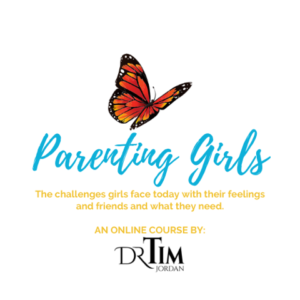Many girls have a belief that they are not good enough, and it’s literally killing them. Here’s what parents can do about it.
Show Notes:
In this podcast Dr. Jordan describes many causes of why girls develop a belief that they are not good enough and the costs of having that belief.
Parent’s part in girls developing this belief
Parents: Some ways that parents contribute to girls developing a not good enough belief include having an autocratic parenting style with criticism, yelling, and punishments; comparing them to siblings unfavorably, being distracted and not around to spend time with them, valuing achievement over character, and modeling this belief with what they say about themselves and how they act.
How coaches contribute to girls developing harmful beliefs
Coaches: coaches who are intense and yell a lot and are focused on winning at all costs can cause girls to internalize the message they aren’t enough.
Peer’s role in why girls develop a not good enough belief
Peers: Girls often compare themselves to friends and peers unfavorably, and they also do a lot of body and fat shaming with huge effects on each other’s beliefs.
What is the spiral of beliefs & how does it contribute to girl’s belief systems
Spiral of beliefs: Past negative experiences often causes girls to decide they aren’t good enough and for those thoughts to develop into belief systems. This includes friend issues, school performance, and family issues.
How advertising & social media contribute to girl’s beliefs about themselves
Advertising: Dr. Jordan describes how advertisers are selling girls the idea that they themselves are not enough or good enough; that they need this product to have cool friends, be popular, and to be enough.
Images: Girls who compare themselves to images on social media will end up thinking they are ugly, fat, and not good enough.
What can parents do to support their daughters?
Be conscious of what you are saying, modeling, your parenting style, don’t compare them to sibs, value character over achievement; and spend a lot of 1-on-1 time with them
Be a nonjudgmental listener
Be a nonjudgmental listener so she will come to you if problems with friends, mostly just listen but also give perspective & relate to your past experiences.
Help them become aware of the spiral of beliefs: ask what they are saying to themselves about themselves due to life experiences, challenge (-) thoughts & beliefs, teach them they are always in charge of what they allow experiences to mean about them = they are always in charge of their story.
Be careful when choosing teams about who is the coach; if too intense or critical ,move on b/c there are lots of teams & coaches.
Teach girls to be media & image savvy
Teach girls to be media savvy, aware of what ads are really selling them, question them always! What are they trying to sell me? What are they saying to me about me? Too fat? Hair too wavy?
Teach girls to be image savvy, question every image & know they aren’t real & catch self if comparing self to them.
We need to do a better job of preventing kids from internalizing negative beliefs about themselves, especially about not being good enough.
Contact Dr. Jordan: www.drtimjordan.com
For more information about girls and their emotional and friendship challenges, check out Dr. Jordan’s online course, Parenting girls: The challenges girls face today with their feelings and friends and what they need

Podcast: Play in new window | Download | Embed